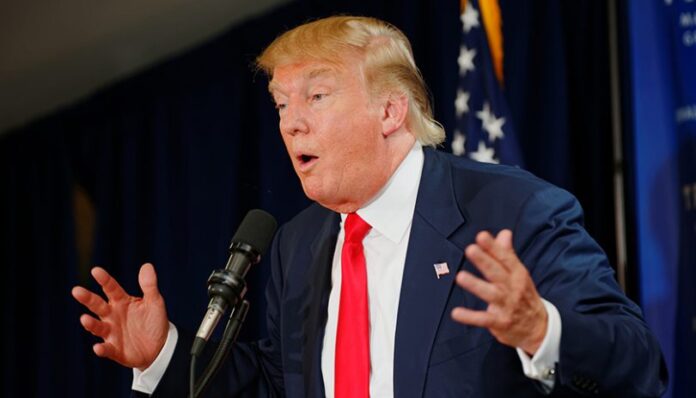
By Stacy M. Brown, NNPA Newswire Senior National Correspondent
Former President Donald Trump has once again grabbed the national spotlight with a fiery rally in South Dakota, where he unveiled a disturbing vision of America’s future if his fervent supporters catapult him back into the White House. In a dystopian speech that echoed themes of division and fear, Trump accused President Joe Biden of orchestrating a massive indictment against him, labeling it as election interference.
With unmistakable overtones of racial tension, Trump’s rhetoric targeted immigrants, migrants, and people of color, reigniting concerns about the direction of his political ambitions. The former president, indicted four times and impeached twice, has recently faced civil responsibility for sexual assault. His Trump Organization was also found guilty of fraud in New York.
At his latest rally, Trump aimed at Democrats, accusing them of allowing an “invasion” of migrants at the southern border and attempting to revive COVID-19 “hysteria.” This stark speech painted a grim picture of a potential second Trump presidency that could pose even more significant challenges to the rule of law. “The former president’s tendencies toward authoritarianism could make the 2024 election a profound choice,” CNN’s Stephen Collinson wrote following Trump’s South Dakota speech.
Trump’s view that the Oval Office grants him unfettered powers raises concerns about his potential behavior if reelected, particularly regarding his alleged attempts to overturn the 2020 election results by intimidating local officials. He turned the spotlight away from his
actions, characterizing legal accountability as a threat to democracy.
“We’re either going to go one way or the other, and if we go the other, we’re not going to have a country left,” Trump warned his South Dakota supporters, promising unity, and justice if he returns to power.
The ominous tone follows a March rally where Trump positioned his 2024 campaign as an avenue for “retribution” against perceived enemies, intensifying the autocratic undertones of his campaign and causing deep concerns for voters and adversaries.
Critics who once dismissed Trump’s belligerence as mere performance are reevaluating their stance in the face of substantial evidence presented in criminal indictments. The indictments allege that Trump misused his presidential authority to undermine the election and used social media and public appearances to intimidate judges and potential jurors ahead of his trials.
Trump’s comments about using presidential power to launch investigations against political opponents, made with a sarcastic tone at the rally, are alarming given his history of following through on threats. His belief in almost unlimited constitutional power is evident in his pending indictments for election interference and handling classified documents. As Collinson noted, Trump railed in his speech that the cases filed against him would “allow” him, if re-elected, to call his attorney general and order an investigation into his political adversaries. “Indict my opponent, he’s doing well,” Trump said, implying that was exactly what Biden had done.
His legal troubles are an ongoing concern as Trump seeks to avoid prosecution by returning to the White House. Numerous reports have surfaced suggesting he aims to reshape the federal government to root out disloyal career employees, furthering his agenda to consolidate power.
Trump’s divisive track record on racial issues has also come under scrutiny, with past controversies ranging from discriminatory housing practices to the infamous Central Park Five case, where he called for the execution of wrongfully accused Black and Latino teenagers. As noted by PBS and others, Trump has used racist language against Manhattan District Attorney Alvin Bragg, a Black man, calling him an “animal.” He called Fulton County District Attorney Fani Willis “a rabid partisan,” and paid for an ad that falsely claimed Willis was involved in a romantic relationship with a gang member she prosecuted.
“This is who Donald Trump is,” Cliff Albright, executive director of Black Voters Matter, a voting advocacy group, stated in August. “He’s been this way all his time in public life.” The former president’s response to his latest indictment appears consistent with his strategy of relentless attacks, often infused with racially charged language. While not employing explicit slurs, Trump’s speech refers to a dark history of dehumanizing Black individuals, drawing criticism from experts and observers.
“He’s taking that historical racialized language that was offensive and insulting, and the subordinating of Black persons, applying it in a contemporary space and really bubbling up that history,” Bev-Freda Jackson, a professor in the school of public affairs at American University, told PBS earlier this year.

